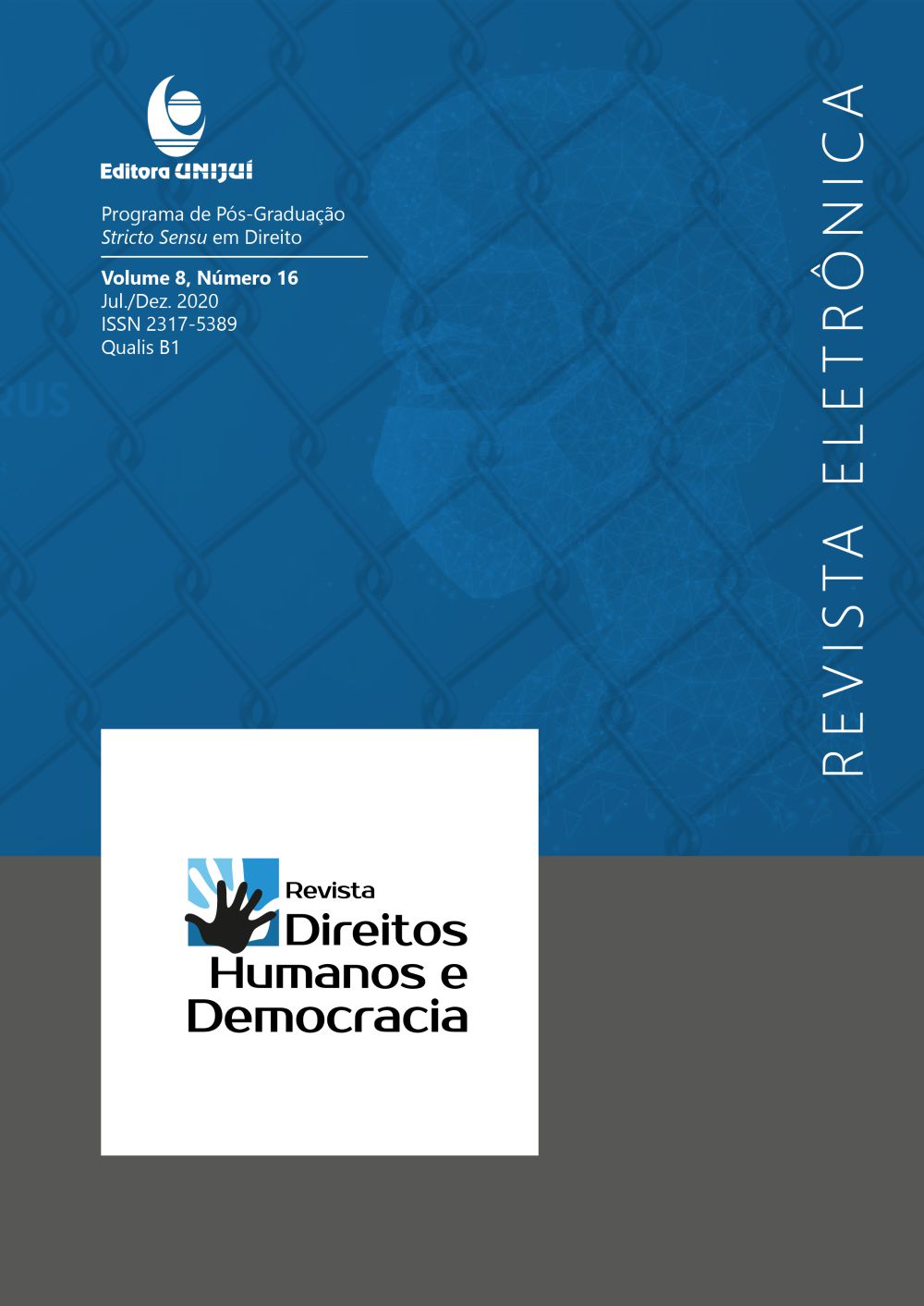A TERRA COMO AFIRMAÇÃO DO ARQUÉTIPO DA MULHER SELVAGEM: UMA ANÁLISE DA RECOMENDAÇÃO GERAL Nº 19 ADOTADA PELA CONVENÇÃO SOBRE A ELIMINAÇÃO DE TODAS AS FORMAS DE DISCRIMINAÇÃO CONTRA A MULHER – CEDAW
DOI:
https://doi.org/10.21527/2317-5389.2020.16.24-39Keywords:
General Recommendations No. 19 - CEDAW, Ground;, Human RightsAbstract
It’s a research that investigates the acess to land by peasant woman as an expression of the Wild Woman archetype’s rescue. The analysis begins, in the first moment, from the narrative of the short story “Fur seal, skin of the soul”, from the book “Women who run with wolves: Myths and Stories of the Wild Woman Archetype”, by Clarissa Pinkola Estés. The seal woman’s skin loss story – the deprivation of her wild self, her homeland – allows establishing a new understanding of female peasant social movements for access to and ownership of land. Once this stage is completed, it’s reviewed some normative documents that regulate access to land by women in Brazil and, in this sense, advance in the structural fight against discrimination against women in the countryside. Finally, the Convention on the Elimination of all Forms of Discrimination against Women is examined – CEDAW, international treaty for the protection of women's human rights, ratified by the Brazilian State, which imposes, among other themes, minimum parameters of state actions in promoting access to land by women. It uses the exploratory method of analysis and, as research tools, the bibliographical, historical, legislative and documentary revision on the subject. In the end, it’s concluded although signatory to the treaty under analysis, Brazil perpetuates gender violence in the countryside and, acting in this way, annihilates the Wild Woman, mentor of the life of peasant women
Downloads
Published
How to Cite
Issue
Section
License
By publishing in the Revista Direitos Humanos e Democracia, authors agree to the following terms:
Articles are licensed under the Creative Commons Atribuição 4.0 Internacional (CC BY 4.0), which allows:
Share — copy and redistribute the material in any medium or format;
Adapt — remix, transform, and build upon the material for any purpose, including commercial use.
These permissions are irrevocable, provided the following terms are respected:
Attribution — authors must be properly credited, with a link to the license and indication of any modifications made;
No additional restrictions — no legal or technological measures may be applied that restrict the use permitted by the license.
Notices:
The license does not apply to elements in the public domain or covered by legal exceptions.
The license does not grant all rights required for specific uses (e.g., image rights, privacy, or moral rights).
The journal is not responsible for opinions expressed in the articles, which remain the sole responsibility of the authors. The Editor, with the support of the Editorial Committee, reserves the right to suggest or request modifications when necessary.
Only original scientific articles presenting research results of interest, not previously published or simultaneously submitted to another journal with the same purpose, will be accepted.
References to trademarks or specific products are intended solely for identification purposes and do not imply any promotional endorsement by the authors or the journal.
License Agreement: Authors retain copyright over their articles and grant the Revista Direitos Humanos e Democracia the right of first publication.













